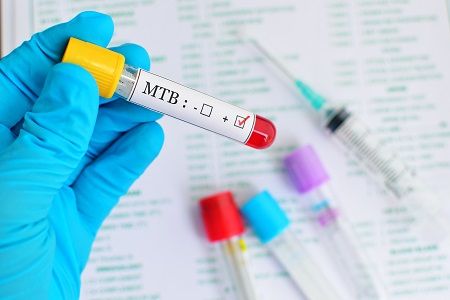Article
Study Gets to the Nitty-Gritty of HIV, Tuberculosis Coinfection
Author(s):
We know that HIV results in a compromised immune system, making patients more susceptible to other illnesses, but specific information about the connection between HIV and TB has been lacking.

People infected with the human immunodeficiency virus (HIV) are more likely to get tuberculosis (TB) — but why? We know that HIV results in a compromised immune system, making patients more susceptible to other illnesses, but specific information about the connection between HIV and TB has been lacking.
Researchers from Linköping University in Sweden studied how HIV infection impacts Myobacterium tuberculosis (Mtb), the bacteria which causes the lung disease.
“The risk of infection progressing to active TB is around 30 times higher for people who are HIV-positive. But the reason for this has not been known at the cellular level,” lead author Robert Blomgran, a research fellow of Medical Micro Biology, said in a news release.
When someone is exposed to TB, the immune defense typically encloses the bacteria with special scar tissue. When this happens, the infection is considered to be latent, but 10% of people with the latent infection will actually develop active TB.
The team learned more about the immune defense against TB by evaluating dendritic cells, a type of immune cell. These cells break down microorganisms, including the TB bacteria, and show them at the cell surface. Then other immune cells, particularly T-cells, bind to the bacteria fragments on the surface. At this point, the dendritic cells activate the T-cells to kill the TB.
When the researchers infected human dendritic cells with HIV and Mtb, they found that the coinfection inhibited the dendritic cells’ immune defense. Also, the dendritic cells weren’t able to activate the T-cells as efficiently as they do with just the Mtb infection.
Now the team knows that HIV increases Mtb potency by interfering with a central function of the immune system, as described in the report in The American Journal of Pathology.
“We have now shown that HIV has a clear effect also on the innate immune defense, in particular the dendritic cells, which link the innate and the adaptive immune defenses,” Blomgran said.
Based on these findings, future treatments may need to focus on strengthening immune defense in these cells in what is called “host-directed therapy,” Blomgran concluded.
Related Coverage:
Much Needed HIV, Tuberculosis Test Development Is Underway
HIV, Tuberculosis Coinfection Should Be Treated Simultaneously





